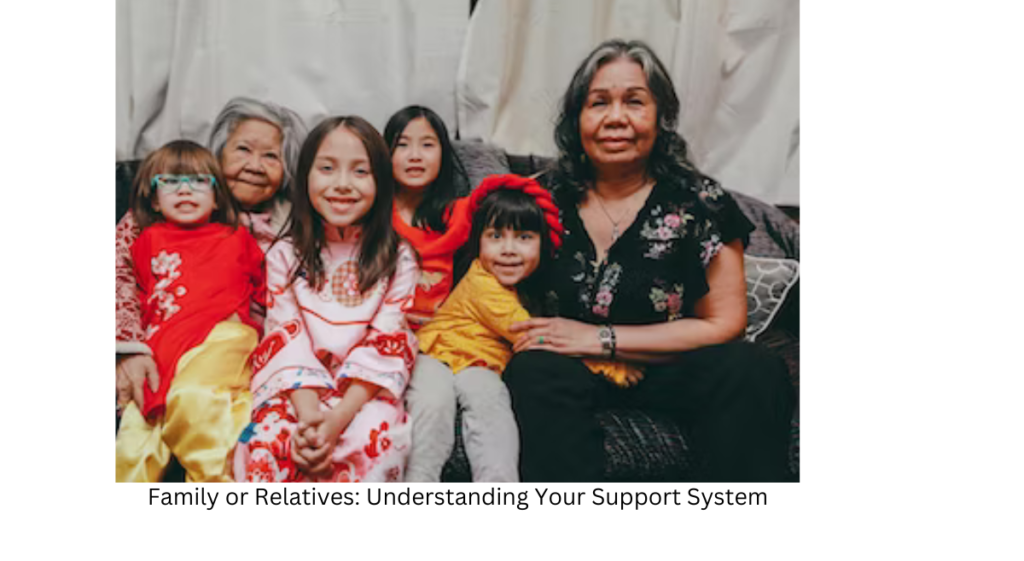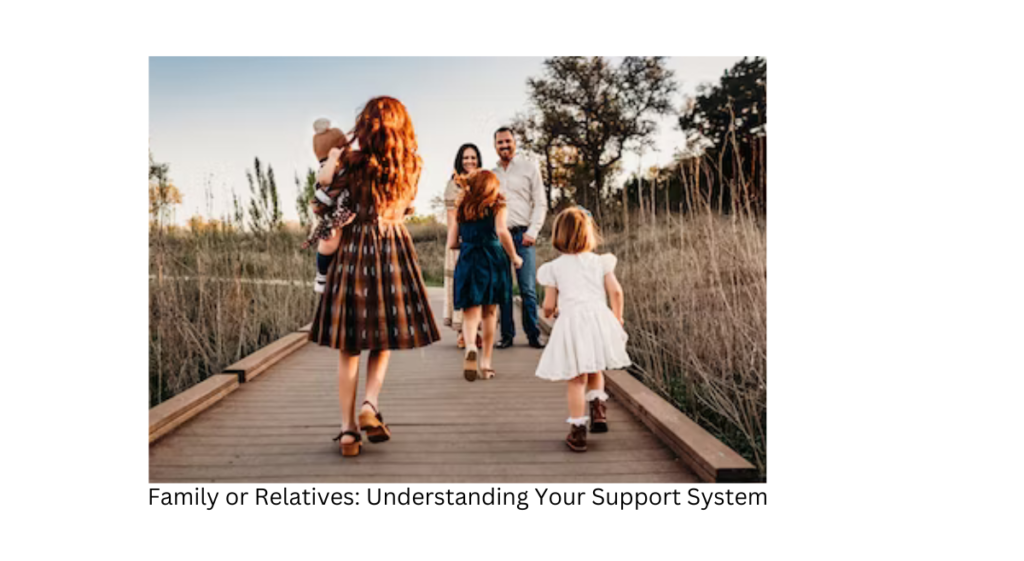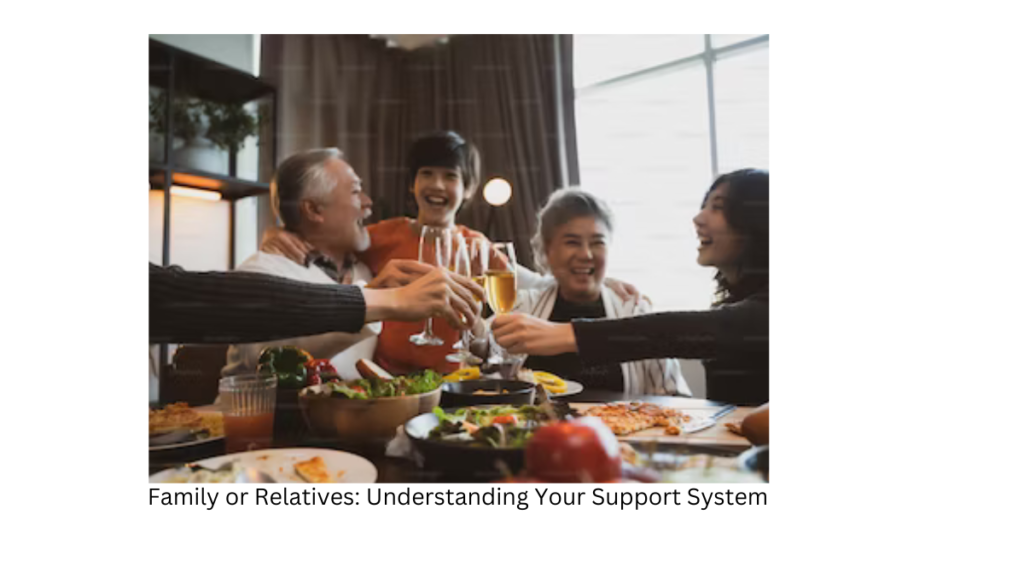Introduction
Family or Relatives: Understanding Your Support System

Family and relatives are the backbone of our support system. They are the ones who are always there for us, through good times and bad. But what does it mean to have a support system? And how can we identify and nurture our relationships with our family and relatives?
How to identify and nurture your relationships with your family or relatives
The first step to nurturing your relationships with your family and relatives is to identify who is in your support system. This may include your parents, siblings, children, extended family, and close friends. Once you have identified your support system, make an effort to stay in touch with these people on a regular basis. This could involve spending time together, talking on the phone, or simply sending a text message or email.

It is also important to be supportive of your family and relatives. When they are going through a tough time, offer them your emotional and practical support. Let them know that you are there for them and that you care.
What is a support system?
A support system is a network of people who provide us with emotional, practical, and financial support. These people can be family, relatives, friends, or even colleagues. A good support system can help us to cope with stress, manage our emotions, and achieve our goals.
Why is it important to have a support system?
Having a strong support system is essential for our mental and physical health. Studies have shown that people with strong social ties are less likely to experience depression, anxiety, and loneliness. They are also more likely to live longer, healthier lives.
Here are some tips for nurturing your relationships with your family and relatives:

- Make time for each other. Schedule regular time to spend with your family and relatives. This could involve going out to dinner, watching a movie, or simply sitting around and talking.
- Be supportive. Be there for your family and relatives when they are going through a tough time. Offer them your emotional and practical support.
- Be honest and open. Communicate honestly and openly with your family and relatives. This will help to build trust and intimacy in your relationships.
- Forgive each other. Everyone makes mistakes. Be willing to forgive your family and relatives when they hurt you. This will help to maintain positive relationships.
- Have fun together. Enjoy spending time with your family and relatives. Create fun memories that you will cherish for years to come.
What do people with no close family/relatives do when they get really old?
When people do not have close family or relatives to provide support as they age, they often have to rely on other sources of assistance and plan for their long-term care differently. Here are some common options and strategies:

- Professional Caregivers: Hiring professional caregivers, either in-home or at an assisted living facility, can provide essential assistance with daily activities like bathing, dressing, meal preparation, and medication management. These caregivers can help maintain a person’s independence and ensure their safety.
- Senior Living Communities: Independent or assisted living communities are designed for seniors who can still manage some aspects of daily life but may require assistance with certain tasks. These communities offer a social environment and access to various services.
- Long-Term Care Facilities: For those with more significant health needs, nursing homes or skilled nursing facilities provide 24/7 medical care, rehabilitation services, and assistance with daily living activities.
- Financial Planning: People without close family should carefully plan for their financial future. This includes creating a financial plan that covers the costs of healthcare, housing, and other expenses related to aging. Consulting with a financial advisor or elder law attorney can be helpful in this regard.
- Advance Directives: Individuals should establish advance directives, such as a living will and durable power of attorney for healthcare, to ensure their healthcare preferences are known and respected if they become unable to make decisions for themselves.
- Social Networks: Building a support network of friends, neighbors, or community organizations can provide emotional and practical support. Joining senior centers, clubs, or volunteer groups can help combat isolation and loneliness.
- Geriatric Care Management: Hiring a geriatric care manager can be beneficial, as they can help coordinate various aspects of care, such as medical appointments, home modifications, and financial matters.
- Government Assistance Programs: Depending on their financial situation, individuals may qualify for government assistance programs like Medicaid or Supplemental Security Income (SSI) to help cover healthcare and living expenses.
- Home Modifications: Making modifications to one’s home to improve accessibility and safety can help seniors continue living independently. This may include installing grab bars, ramps, or stairlifts.
- Legal and Estate Planning: Creating a will, designating beneficiaries, and considering options for estate planning can ensure that a person’s assets are managed according to their wishes when they pass away.
It’s important for individuals without close family or relatives to plan for their aging process well in advance to ensure they have the support and resources they need as they get older. Consulting with professionals, such as social workers, healthcare providers, and financial advisors, can be valuable in developing a comprehensive plan tailored to their specific needs and circumstances.
Conclusion
Family and relatives are the most important people in our lives. They are our support system, our confidants, and our friends. Make an effort to nurture your relationships with your family and relatives. It is an investment that is well worth it.
https://youtu.be/Y9omLiNxgFo?si=HxpRBOpL7tqJv1sT





